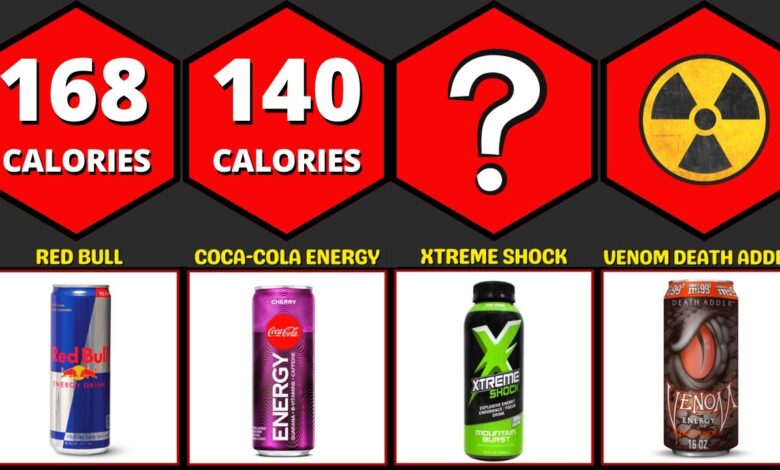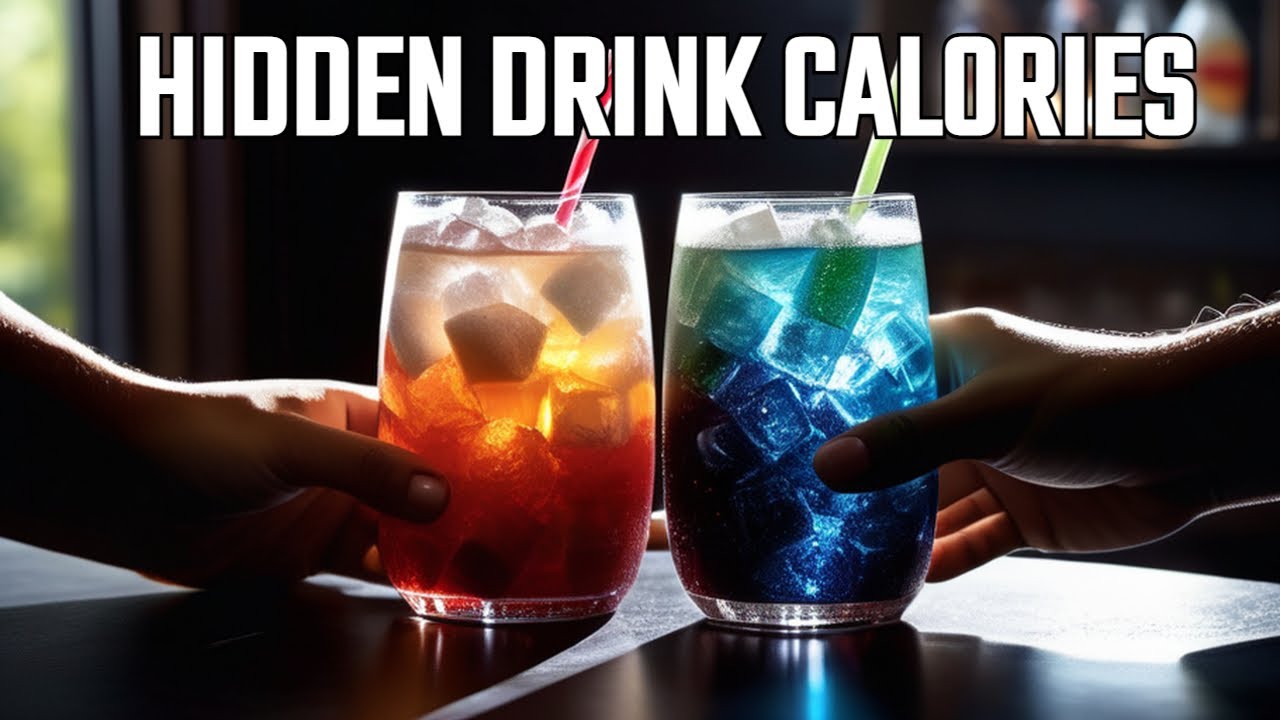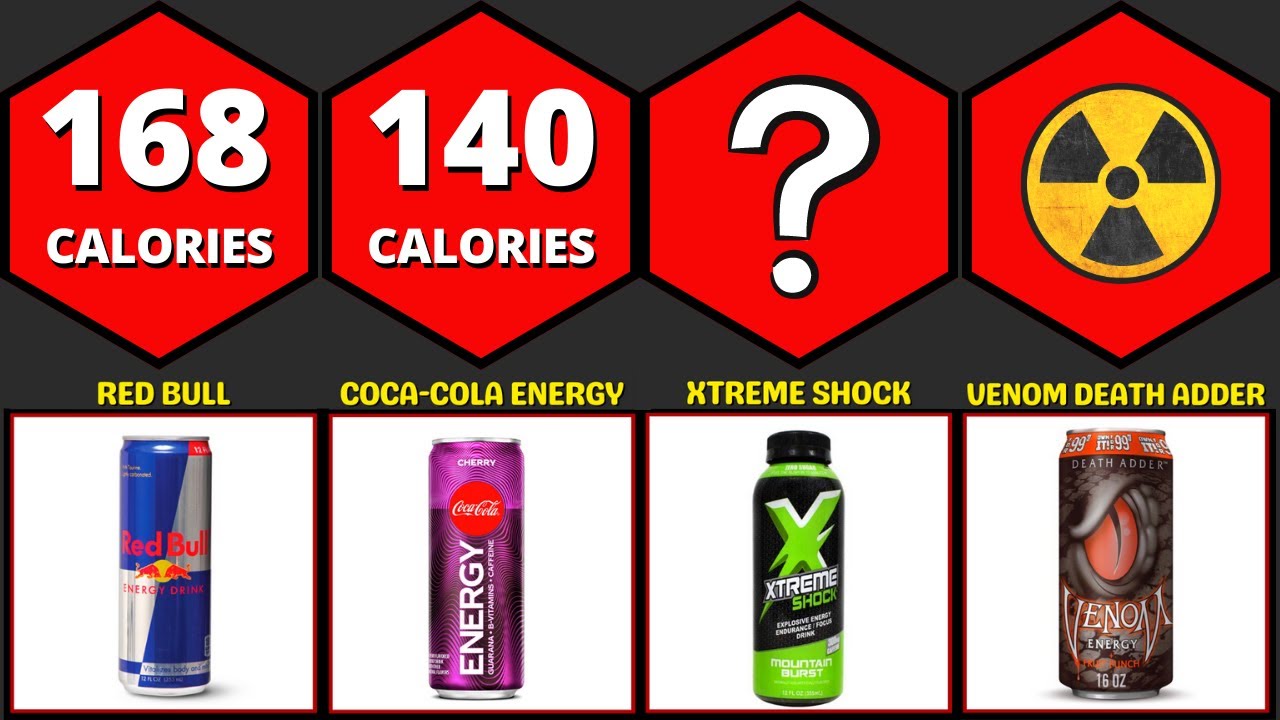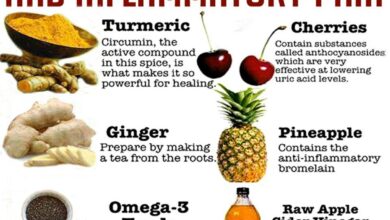
Are These Drinks Worth the Calories?
The drinks that are worth the calories or not – We all love a good drink, but have you ever stopped to consider if those refreshing beverages are actually worth the calories they pack? “Are These Drinks Worth the Calories?” is a question that deserves a closer look, especially as we navigate a world of sugary sodas, creamy lattes, and enticing cocktails.
This exploration dives into the calorie content, nutritional value, and potential health impacts of popular drinks, helping you make informed choices about what you put in your glass.
From the classic Coca-Cola to the trendy kombucha, we’ll dissect the calorie content of various drinks, highlighting the hidden sugar bombs and surprising low-calorie options. We’ll also uncover the nutritional benefits and potential drawbacks of different beverages, exploring how they can impact your weight, blood sugar, and overall well-being.
Ultimately, this journey aims to empower you with the knowledge you need to make smarter drink choices that align with your health goals.
The Calorie Content of Popular Drinks
Understanding the calorie content of your favorite drinks is essential for managing your weight and overall health. While some drinks are surprisingly high in calories, others offer refreshing hydration without adding significant calories to your daily intake. This guide explores the calorie content of popular drinks across various categories, helping you make informed choices about your beverage consumption.
Alcoholic Drinks
Alcoholic beverages are often associated with social gatherings and celebrations, but they can contribute significantly to your daily calorie intake. Here is a comparison of calorie counts for various alcoholic drinks:
- Beer:A 12-ounce serving of regular beer typically contains around 150 calories. Light beers can have as few as 100 calories, while craft beers and stouts can exceed 200 calories.
- Wine:A 5-ounce serving of red or white wine typically contains around 125 calories. However, sweet wines, such as dessert wines, can have significantly higher calorie counts.
- Liquor:Hard liquor, such as vodka, whiskey, and rum, is typically low in calories when consumed neat. However, mixers like soda and juice can significantly increase the calorie content. For example, a vodka soda with a standard 1.5 ounces of vodka and 4 ounces of soda contains around 100 calories, while a margarita with 1.5 ounces of tequila, 1 ounce of lime juice, and 1 ounce of triple sec can contain around 250 calories.
Non-Alcoholic Drinks
Non-alcoholic beverages offer a wide range of flavors and refreshment options, but some can be surprisingly high in calories. Here is a breakdown of calorie counts for popular non-alcoholic drinks:
- Soda:A 12-ounce serving of regular soda typically contains around 150 calories. Diet sodas, which are sweetened with artificial sweeteners, contain negligible calories.
- Juice:A 12-ounce serving of fruit juice can contain anywhere from 100 to 150 calories, depending on the type of fruit. For example, orange juice typically contains around 110 calories per serving, while apple juice can contain around 150 calories per serving.
It is important to note that juice is often high in sugar and should be consumed in moderation.
- Sports Drinks:Sports drinks are designed to replenish electrolytes and fluids lost during physical activity. They typically contain around 50 to 100 calories per 8-ounce serving. While sports drinks can be beneficial for athletes, they are not necessary for most people and can contribute to excessive calorie intake.
- Energy Drinks:Energy drinks are often marketed as providing a boost of energy and focus. They typically contain high levels of caffeine and sugar, resulting in high calorie counts. A 16-ounce serving of energy drink can contain around 200 calories. It is important to consume energy drinks in moderation, as excessive consumption can lead to health problems.
Coffee and Tea
Coffee and tea are popular beverages that can be enjoyed both hot and cold. Here is a comparison of calorie counts for various coffee and tea drinks:
- Black Coffee:A cup of black coffee contains very few calories, typically less than 5 calories. However, adding sugar, milk, or cream can significantly increase the calorie content.
- Latte:A 16-ounce latte with whole milk can contain around 200 calories. Switching to skim milk or non-dairy alternatives can reduce the calorie count significantly.
- Iced Coffee:Iced coffee can be high in calories, especially when sweetened with sugar or syrups. A 16-ounce serving of iced coffee with sugar can contain around 250 calories.
- Green Tea:A cup of green tea contains very few calories, typically less than 5 calories. However, adding sugar or sweeteners can increase the calorie content.
- Black Tea:A cup of black tea contains very few calories, typically less than 5 calories. Adding sugar or sweeteners can increase the calorie content.
Smoothies
Smoothies are a popular choice for a quick and healthy meal or snack. However, the calorie content of smoothies can vary greatly depending on the ingredients used. Here is a comparison of calorie counts for various smoothie options:
- Fruit Smoothies:Smoothies made primarily with fruit can be relatively low in calories, typically around 150 to 200 calories per serving. However, adding ingredients like yogurt, milk, or ice cream can significantly increase the calorie count.
- Green Smoothies:Green smoothies are often made with leafy greens, fruits, and vegetables. They can be a healthy and nutritious option, but the calorie content can vary depending on the ingredients used. A typical green smoothie can contain around 200 to 300 calories per serving.
- Protein Smoothies:Protein smoothies are often marketed as a way to boost muscle growth and recovery. They typically contain protein powder, fruits, and vegetables. The calorie content of protein smoothies can vary depending on the type of protein powder used and the other ingredients added.
It’s always a balancing act when it comes to deciding which drinks are worth the calories. Sometimes, a refreshing glass of something sweet is just what you need, but other times, you’re better off sticking to water or a low-calorie option.
If you’re trying to be mindful of your intake, it’s helpful to focus on filling up on nutrient-rich foods like salads, which can be surprisingly satisfying and delicious. Check out these diets and recipes for meal worthy salads for inspiration! And remember, even when it comes to drinks, there are ways to enjoy a treat without going overboard – a small glass of wine or a fancy mocktail can be just as enjoyable as a sugary soda.
A typical protein smoothie can contain around 250 to 350 calories per serving.
Nutritional Value of Drinks

Drinks are an essential part of our daily lives, providing hydration and contributing to our overall nutritional intake. While some drinks offer valuable nutrients, others can be detrimental to our health. This section explores the nutritional content of different drinks, highlighting their potential benefits and drawbacks.
Vitamins and Minerals in Drinks
The nutritional value of drinks varies significantly. Some drinks, like fruit juices, are good sources of vitamins and minerals. For example, orange juice is rich in vitamin C, which is an antioxidant that helps boost the immune system. Other drinks, such as milk and fortified plant-based milk alternatives, are good sources of calcium and vitamin D, which are essential for bone health.
Comparison of Nutritional Value
When comparing the nutritional value of different drinks, it’s crucial to consider their overall composition. For example, while fruit juices contain vitamins and minerals, they also have a high sugar content, which can contribute to weight gain and other health problems.
In contrast, water is calorie-free and provides essential hydration without added sugars.
Health Benefits and Drawbacks
The nutritional content of drinks can have a significant impact on our health. Drinks rich in vitamins and minerals can support overall well-being, while those high in sugar and unhealthy fats can contribute to chronic diseases like obesity, type 2 diabetes, and heart disease.
Examples of Drinks with Specific Nutritional Benefits
Several drinks offer specific nutritional benefits:
- Green teais rich in antioxidants, which may help protect against cancer and heart disease.
- Smoothiesmade with fruits, vegetables, and yogurt can be a good source of vitamins, minerals, and fiber.
- Bone broth, made by simmering bones and cartilage, is a good source of collagen and other nutrients that support joint health.
Impact of Drinks on Health and Wellness
The choices we make about our beverages can have a significant impact on our overall health and well-being. Beyond simply quenching thirst, drinks play a crucial role in maintaining hydration, influencing weight management, and affecting blood sugar levels. Understanding how different drinks affect our bodies can empower us to make healthier choices for a more vibrant life.
Impact of Drinks on Weight Management, The drinks that are worth the calories or not
The caloric content of beverages can contribute significantly to weight gain. Sugary drinks, such as soda, juice, and sweetened tea, are particularly problematic. These drinks provide empty calories, meaning they offer little nutritional value and can lead to excess calorie intake.
Deciding which drinks are worth the calories can be a real struggle, especially when you’re trying to stay on track with your health goals. If you’re considering intermittent fasting, it’s crucial to avoid common mistakes like overeating during your eating window or breaking your fast with sugary drinks.
Check out this helpful article on 6 intermittent fasting mistakes to avoid to ensure you’re getting the most out of your fasting routine. Once you’ve got your fasting down, you can make smarter choices about those calorie-laden drinks and enjoy them guilt-free!
- A single 12-ounce can of soda can contain around 150 calories, which is equivalent to a small snack. Consuming multiple sugary drinks daily can easily add hundreds of extra calories to your diet.
- Studies have shown a strong correlation between sugary drink consumption and weight gain, particularly in children and adolescents. These drinks can also contribute to the development of obesity, a condition associated with numerous health risks.
On the other hand, water, unsweetened tea, and black coffee are calorie-free and can help promote feelings of fullness, potentially reducing overall calorie intake.
Impact of Drinks on Blood Sugar Levels
The effect of drinks on blood sugar levels depends largely on their sugar content. Sugary drinks, as mentioned earlier, can cause rapid spikes in blood sugar levels, potentially leading to insulin resistance and an increased risk of type 2 diabetes.
- This is because the sugar in these drinks is quickly absorbed into the bloodstream, overloading the body’s ability to process it efficiently.
- Conversely, water, unsweetened tea, and coffee do not affect blood sugar levels and can even help regulate blood sugar in individuals with diabetes.
Additionally, certain beverages, such as milk and fruit juice, contain natural sugars that can also impact blood sugar levels. However, these drinks also provide essential nutrients, so it’s important to consume them in moderation.
Impact of Drinks on Hydration
Water is the most essential beverage for maintaining hydration. Our bodies require adequate hydration for various functions, including regulating body temperature, transporting nutrients, and flushing out toxins.
- Dehydration can lead to fatigue, headaches, constipation, and impaired cognitive function.
- While other beverages, such as tea and coffee, can also contribute to hydration, water is the most effective choice.
It’s important to note that some drinks, such as alcohol and sugary drinks, can actually dehydrate the body.
Potential Health Risks Associated with Excessive Drink Consumption
Excessive consumption of certain drinks can pose significant health risks.
- Sugary drinks, as we’ve discussed, are linked to weight gain, type 2 diabetes, and heart disease.
- Excessive alcohol consumption can damage the liver, increase the risk of certain cancers, and contribute to cardiovascular disease.
It’s crucial to consume these drinks in moderation or avoid them altogether.
Tips for Making Healthier Drink Choices
Here are some practical tips for making healthier drink choices:
- Prioritize water:Aim to drink plenty of water throughout the day. Keep a reusable water bottle with you and refill it frequently.
- Choose unsweetened options:Opt for unsweetened tea, coffee, and milk alternatives. If you crave sweetness, add a small amount of natural sweeteners like honey or stevia.
- Limit sugary drinks:Reduce your intake of soda, juice, and sweetened tea. These drinks provide empty calories and can contribute to various health problems.
- Enjoy fruit in moderation:Fruit is a healthy source of vitamins and minerals, but it also contains natural sugars. Enjoy fruit in moderation and opt for whole fruits over fruit juice.
- Be mindful of alcohol consumption:If you choose to drink alcohol, do so in moderation. Limit your intake and be aware of the potential health risks associated with excessive consumption.
By making mindful choices about our beverages, we can significantly improve our overall health and well-being.
Factors Influencing Drink Choice

Our daily beverage choices are shaped by a complex interplay of factors, ranging from personal preferences to social influences. Understanding these factors is crucial for promoting healthier drink choices and addressing public health concerns related to excessive sugar intake and other unhealthy components in certain beverages.
Personal Preferences
Personal preferences play a significant role in shaping drink choices. Factors such as taste, flavor, and texture are paramount in determining what individuals enjoy consuming. Some individuals may prefer sweet drinks, while others might favor tart or bitter flavors.
Additionally, the perceived health benefits of a drink can influence preference. For example, individuals seeking hydration might choose water or unsweetened tea, while those looking for energy might opt for sports drinks or energy drinks.
Social Norms
Social norms, including cultural traditions and peer influence, significantly impact beverage choices. Drinks are often associated with specific social events and settings. For example, coffee is commonly consumed during social gatherings and work breaks, while alcoholic beverages are frequently associated with celebrations and social outings.
Furthermore, peer pressure and social expectations can influence drink choices, particularly among adolescents and young adults.
Availability
The availability of different beverages influences choices. Individuals are more likely to consume drinks that are readily accessible and convenient. For example, sugary sodas and other sweetened beverages are often readily available in schools, restaurants, and vending machines. Conversely, healthier options like water and unsweetened beverages may be less accessible in certain settings.
Marketing and Advertising
Marketing and advertising play a significant role in shaping drink preferences, particularly for younger generations. Companies invest heavily in advertising campaigns that target specific demographics and promote their products through various channels, including television, social media, and online platforms.
These campaigns often emphasize taste, convenience, and social desirability, while downplaying the potential health risks associated with certain beverages.
Cultural and Regional Influences
Cultural and regional influences play a significant role in shaping drink consumption patterns. Different cultures have unique beverage traditions and preferences. For example, tea consumption is prevalent in many Asian cultures, while coffee is more popular in Western societies.
Sometimes, I wonder if that extra scoop of ice cream is really worth the calories. It’s a tough call, especially when you consider the thrill of a good adrenaline rush. I recently read about a guy named James who had a near-death experience while parachuting, how a parachuting injury almost sent james into a free fall.
After that, I’m pretty sure he’d agree that a little extra sugar is a small price to pay for the simple joy of living. Maybe those extra calories aren’t so bad after all.
Regional factors, such as climate and access to ingredients, also influence beverage choices. In hot climates, people tend to consume more water and refreshing beverages, while in colder climates, hot beverages like tea and coffee are more common.
Making Informed Drink Choices
Making informed drink choices is crucial for maintaining good health and well-being. It involves being mindful of the ingredients, calorie content, and potential health effects of the beverages we consume. By adopting a few simple strategies, we can make healthier drink choices that align with our individual goals.
Strategies for Reducing Sugar Intake
Excessive sugar intake from drinks can contribute to weight gain, tooth decay, and other health problems. Reducing sugar consumption is an important step towards a healthier lifestyle. Here are some effective strategies:
- Choose water as your primary beverage:Water is calorie-free, hydrating, and essential for various bodily functions. Opt for water over sugary drinks whenever possible.
- Read labels carefully:Pay attention to the sugar content listed on food and beverage labels. Look for drinks with low or no added sugar.
- Limit fruit juices:While fruit juices provide some nutrients, they are often high in sugar. Enjoy them in moderation or choose unsweetened versions.
- Gradually reduce sugar intake:Instead of drastically cutting out sugary drinks, gradually reduce your consumption over time. This can make the transition easier and more sustainable.
- Opt for natural sweeteners:When craving sweetness, consider natural sweeteners like stevia or monk fruit extract, which have fewer calories and a lower glycemic index than sugar.
Benefits of Choosing Low-Calorie or Calorie-Free Alternatives
Low-calorie or calorie-free drinks can be a healthy choice for individuals looking to manage their weight or reduce their overall calorie intake. These drinks can provide hydration and flavor without adding significant calories to the diet.
- Weight management:Calorie-free drinks can help reduce overall calorie intake, which can contribute to weight loss or maintenance.
- Improved blood sugar control:Low-calorie or calorie-free drinks are less likely to cause spikes in blood sugar levels, making them suitable for individuals with diabetes or those trying to manage their blood sugar.
- Reduced risk of chronic diseases:A diet low in added sugar can reduce the risk of developing chronic diseases such as heart disease, type 2 diabetes, and some types of cancer.
Making Healthier Choices When Dining Out or Attending Social Events
Navigating social events and dining out can be challenging when trying to make healthy drink choices. However, with some planning and awareness, it is possible to enjoy yourself without compromising your health goals.
- Plan ahead:Before going out, consider your drink options and choose healthier alternatives. Look for water, unsweetened tea, or low-calorie cocktails.
- Ask for modifications:Don’t hesitate to ask for modifications to your drinks. For example, request a cocktail with less sugar or a soda with diet tonic water.
- Be mindful of portion sizes:Avoid oversized drinks, as they can contain a significant amount of calories and sugar.
- Pace yourself:Sip your drinks slowly and enjoy the flavor. This can help you avoid overindulging and reduce your overall calorie intake.
Exploring Alternative Drinks
The world of beverages is expanding beyond traditional options, with an increasing focus on healthier and more sustainable choices. This has led to a surge in popularity for alternative drinks, offering a range of flavors, nutritional benefits, and environmental considerations.
Plant-Based Milks
Plant-based milks, such as almond milk, soy milk, oat milk, and coconut milk, have gained immense popularity as dairy alternatives. They are often chosen for their lower calorie content, lactose-free nature, and potential health benefits.
Calorie Content and Nutritional Value
- Almond milk:Typically contains around 30-40 calories per cup, with low amounts of protein and fat. It is a good source of vitamin E and calcium (fortified varieties).
- Soy milk:Provides approximately 80-90 calories per cup, with a higher protein content than almond milk. It is a good source of calcium, iron, and vitamin D (fortified varieties).
- Oat milk:Contains around 120-130 calories per cup, with a moderate amount of protein and fat. It is a good source of fiber and calcium (fortified varieties).
- Coconut milk:Offers about 50-60 calories per cup, with a higher fat content than other plant-based milks. It is a good source of potassium and manganese.
Potential Health Benefits
- Reduced risk of cardiovascular disease:Some studies suggest that plant-based milk consumption may be linked to a lower risk of heart disease due to their lower saturated fat content and potential anti-inflammatory properties.
- Improved gut health:Certain plant-based milks, like oat milk, are rich in fiber, which can promote healthy digestion and gut bacteria.
- Allergy-friendly:Plant-based milks are naturally lactose-free and suitable for individuals with dairy allergies.
Tips for Incorporating Plant-Based Milks
- Use in smoothies:Blend plant-based milks with fruits, vegetables, and protein powder for a nutritious and refreshing drink.
- Substitute in baking:Many recipes can be adapted to use plant-based milks instead of dairy milk.
- Enjoy as a standalone beverage:Chill plant-based milks and enjoy them plain or with a splash of flavoring, such as vanilla extract or cinnamon.
Conclusion: The Drinks That Are Worth The Calories Or Not

So, the next time you reach for a drink, remember that not all calories are created equal. By understanding the calorie content, nutritional value, and potential health impacts of different beverages, you can make choices that support your overall health and well-being.
Whether you’re looking to cut back on sugar, boost your hydration, or simply enjoy a delicious and nutritious drink, this guide provides the information you need to make informed decisions. Cheers to a healthier, happier you!






